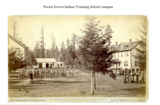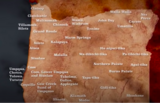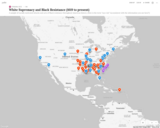
Students will examine Anne Frank’s diary as both a historical and a deliberately created literary text and will understand how the Holocaust affected the lives of the Frank family.
- Date Added:
- 10/25/2023

Students will examine Anne Frank’s diary as both a historical and a deliberately created literary text and will understand how the Holocaust affected the lives of the Frank family.

ESSENTIAL UNDERSTANDINGS• Genocide • Language • History • IdentityLEARNING OUTCOMESStudents will utilize primary documents for historical investigationStudents will define cultural genocideStudents will identify how attempts at education affected the culture of PNW Native Americans2018 SOCIAL SCIENCE STANDARDS• 4.12, 4.14, 4.16-4.22 • 8.3, 8.24, 8.25, 8.28-8.33 • HS.55, HS.56, HS.60-74ESSENTIAL QUESTIONSWhat are the intended and unintended consequences of government policies?What is cultural imperialism?What is destroyed in the name of progress? What is created?

The documents and questions may be used for classroom investigation or as a unit assessment. Documents can be distributed and assigned as a jigsaw or as a complete set. Students read the document and apply historical investigation skills. Students should have access to prior learning about the nature of Indian and white settler contact.Updated video link for Broken Treaties

Indigenous people have been forming governments and building nations for hundreds of years. The formal treaties that were made between the first colonists and the First Peoples of America was nothing new to the native communities as they had already had treaties in place between other tribes.

In this lesson, students will learn about the unique government-to-government relationship between federally recognized tribes and the U.S. government. Students will use a rubric to develop a poster after reading and viewing resources to explain what it means to be a nation within a nation.

This interactive Padlet map allows students to click on pins to discover acts of violence against Black Americans (red pins) and acts of resistance by Black Americans (blue pins). It could serve as a catalyst for research or class discussion about race in America.
Much of this information was compiled from articles by the Zinn Education Project and Blackpast.org.

Openendedsocialstudies.org created this collection of background readings, images, and questions on William Walker and U.S. imperialism in the years between the War with Mexico and the U.S. Civil War. The College of Wooster also hosts a webpage dedicated to Willam Walker's adventurism which includes primary documents, timelines, an historical context essay, discussion questions, and additional resources. https://williamwalker.voices.wooster.edu/
The period between the end of the Mexican-American War and the U.S. Civil War included numerous attempts by U.S. business interests to expand into Central America. William Walker was interested not only in the mining, banana plantations, and possible canal, rail, and steamship routes to connect the East and West coast of the United States but also in the expansion of slavery into the tropical climate of the region.